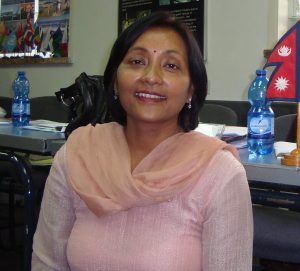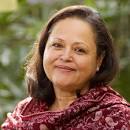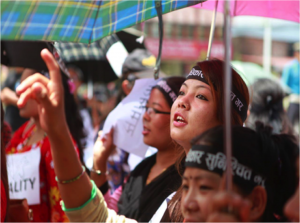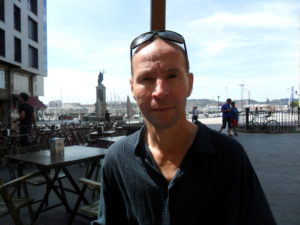

If you look at Tewa’s website, it will tell you that the word means support in Nepali. Applied to the organization, it’s both appropriate and understated. Tewa’s story has been ably told. This is not the place to retell it. Instead, I want to draw attention to a few key ideas which inform it and also to suggest that Tewa’s approach – community resources for the creation and support of that community – is going to be especially important in the wake of the COVID-19 pandemic.
The first it voluntarism. Tewa started, in 1995, with the idea of developing a modern philanthropy for self-reliant development and the empowerment of rural women’s groups in Nepal. As founder Rita Thapa points out, Nepal was then an aid-dependent country steadily losing its indigenous philanthropic tradition. There was very little trust in the existing NGO sector. For her, it was vital that the money was raised locally: ‘I knew that was the only way we could 1) ground it in the local community and 2) have that trust because with something like that you will have to be transparent…otherwise people aren’t going to give you money.’
So, starting in 1997, ‘we mobilised volunteers and they went first to their own families and friends so the trust was already there and after two to three years, that trust grew…. We didn’t have to worry about being transparent. They [the volunteers] knew the stories, they took them back to their families, to their neighbours and to their community.’
Not only did the use of volunteers provide the necessary transparency, it gave the organization a much wider reach than it would have had otherwise. ‘We knew that if we just relied on the 21 members to raise money, it would not go far.’ Tewa’s volunteers go through a four-month induction period, during which, as well as learning what Tewa and its concept of community philanthropy is is about, they bond with each other. The volunteers have been extremely loyal. Often, new ones are family members of existing volunteers. All told, Tewa has trained over 800 volunteers. Strikingly, as Urmila Shrestha, the current executive director remarks, ‘we still have some of the original volunteers from 1997.’
The spirit of community
The second key element is Tewa’s democratic ethos. An image from Rita Thapa’s own earlier account of the organization’s growth captures this: ‘Because our grantee groups would be women from rural Nepal, it was important to ensure that our physical space allowed all to sit on the floor… We always ate together, a simple meal cooked in Tewa…and often extended this hospitality to delighted volunteers, grantees and other visitors who happened to walk in.’

She goes on: ‘I felt we had to level the ground because there were many established hierarchies of class, caste etc…If we’re going to do work to improve other people’s lives, we have to work on our own lives, so that we are not just saying these words like transparency, accountability, we need to practise it ourselves otherwise people sense it. You might speak fancy words, but at the community level, you’re not going to impress anybody. They’ll nod their heads, turn around and do what they have been doing.’
A third key word is trust and the democratic spirit is crucial to producing it. Urmila points out: ‘Without trust, how can you work? As women’s fund, we have complete faith in our women’s groups. They work to respond to their community’s needs and we completely believe in that. We also have complete faith in the staff team, the programme team, the board – trust is the key thing, loving, sharing – these things are built into our work. We never say, “do this, do that. You choose what you need.”’
Crises: doing what’s needed
Tewa is used to dealing with disaster. It has had to contend with civil war between 1996 and 2006, the psychological shock of the palace massacre in 2001 and the earthquake in 2015. Its response to these things shows both resilience and adaptability (key idea #4). The war had already given Tewa a lot of experience in disaster response, and when the earthquake struck, because of Tewa’s reputation for probity, people gave through it for earthquake relief. ‘Tewa and Nagarik Awaz [the peace fund set up by Tewa founder Rita Thapa during the war] pooled their money and within a month and a half over seven million was disbursed. We went and gave cash…using volunteers and a few staff we were able to do that quickly without having any overhead cost and we used this idea of shadow volunteers from districts which weren’t affected. They went and shadowed the women’s organization who were directly affected – they cooked food for babies and for the elderly, ploughed the fields, cleared rubble….If some of them needed food and some asked us, then we also took them food. It was pretty much what they wanted.’
This experience has enabled them to adapt to the current Covid outbreak, although as Urmila says, this crisis has been different, because of the lockdown. Even so, she says, ‘we are making bank transfers to our grantee partners, our partners are communicating with local food suppliers to distribute food – these are the kinds of ways we are trying to cope with the situation.’ Rita adds that Tewa is ‘beginning to do a mapping, districts, provinces to find out what the needs are.’ Moreover, she notes that ‘food security will be a huge issue, so for the next 2-3 years and in the longer term. The first message which we are sending out is build immunity which is not just about wearing masks or washing your hands, it’s about how to stay healthy – yoga, the right food, sunlight – a holistic approach to immunity, growing food, saving seeds and helping expand safety nets.’
The two-sided importance of philanthropy
Number 5 is realising the need to give. Tewa began asking the people to whom they were giving 10,000 rupees to rebuild houses destroyed in the earthquake if they would like to give a little back for a fund that would go to others. ‘Could there be philanthropy even among people who are so badly affected? The response was amazing… most gave 100 rupees back, so we raised 100,000 rupees by the end of all of these outreaches. People like to give and when they give, they are sustained…and while you’re giving them tangible support, it’s also important to give them that kind of satisfaction.’
So what is it?
Community hub, women’s fund, local fundraising champion – Tewa fulfils many roles. How do those involved see its identity? Both Rita and Urmila agree that – in the words of the latter, ‘first and foremost, Tewa is a women’s fund.’ Rita adds, ‘it’s community philanthropy but it’s a women’s fund with a feminist approach to ensure that women had access to resources so that their visibility and voice would be enhanced.’ Even in its response to disasters, Tewa is still in this heartland because as Urmila says, any kind of disaster or conflict always ‘affects the poor worse than others and within the poor, the women are the most vulnerable, because they have to take care of the whole family.’ But while it champions local fundraising, it’s more than that, ‘it’s about creating a sense of self-reliance within communities,’ says Urmila. In the end, names don’t matter. Tewa does what it needs to do and stays true to its purpose. What remains in the mind most from what Tewa says about itself and what others say about it – and this is my final key word – is its essential humanity, expressed in eating with grantees, volunteers or whoever happens to be there, and in the story of Sarita, a victim of domestic abuse, who was effectively sheltered in Tewa’s premises during the day and provided with food. She began to help with chores, to sit in team meetings and to volunteer. With Tewa’s support, her life was transformed. None of these things is done at arm’s length. All of them add an extra dimension to creating community.
Why do these things matter more than ever now? First, I eavesdropped on a recent webinar convened by the Hong Kong Jockey Club and Dalberg Advisors on philanthropic responses to the COVID-19 outbreak, in which one of the speakers pointed out that the crucial response to the pandemic has to be community engagement, not medical intervention. Once victims get to hospital, it’s already too late to check the spread. Other speakers remarked that speed is of the essence – getting money quickly to neighbourhood NGOs – and Tewa is adept at this. But beyond response to the diseases itself, we are in the midst of a crisis whose consequences are imperfectly foreseeable, but some things are already clear. As Urmila remarks, disasters press more heavily on the poor than the better-off. There are already signs that, if left unchecked, inequality will be increased by the pandemic’s effects. We’ve seen both exemplary shows of solidarity and deplorable instances of self-seeking. The crisis has polarized behaviour. If we are to come out of this in a way that draws on the former in the recreation of societies and helps them respond in ways that make them both fairer and more resilient to future shocks (see #BuildBackBetter), we absolutely need to the example of organizations like Tewa.
 Andrew Milner is a freelance writer, researcher and editor specializing in the areas of philanthropy and civil society. He is a consultant to Philanthropy for Social Justice and Peace. He is also a regular contributor to, and associate editor of, Alliance magazine.
Andrew Milner is a freelance writer, researcher and editor specializing in the areas of philanthropy and civil society. He is a consultant to Philanthropy for Social Justice and Peace. He is also a regular contributor to, and associate editor of, Alliance magazine.